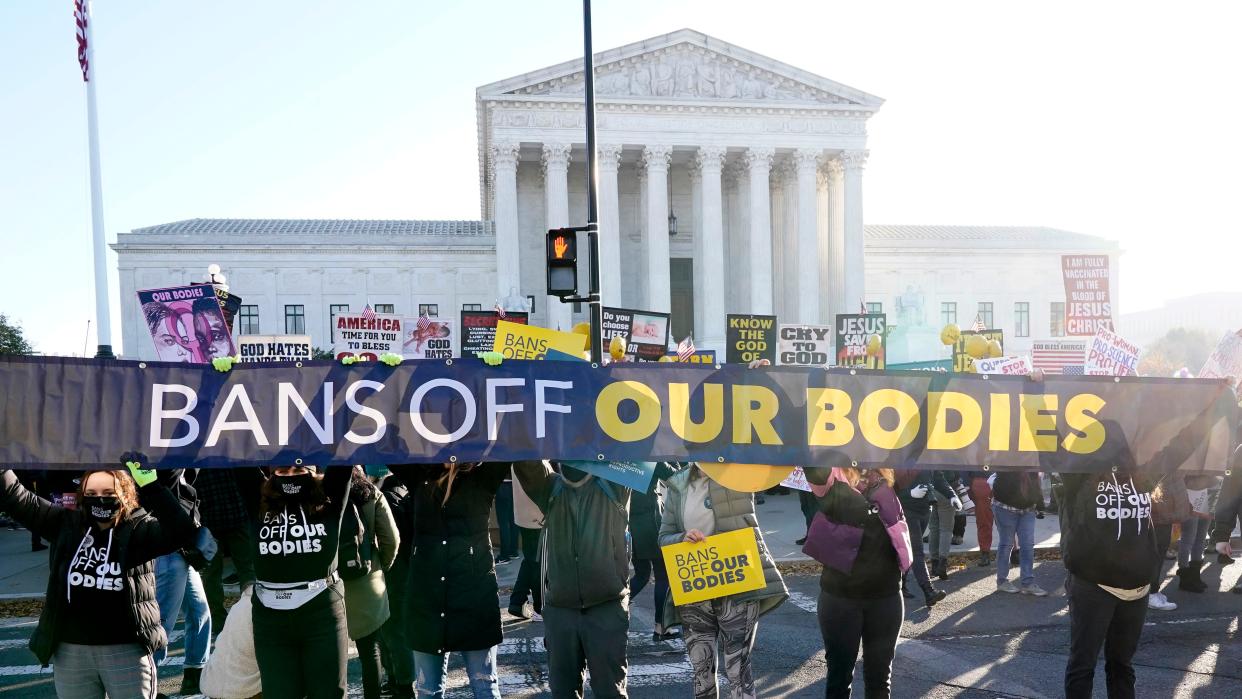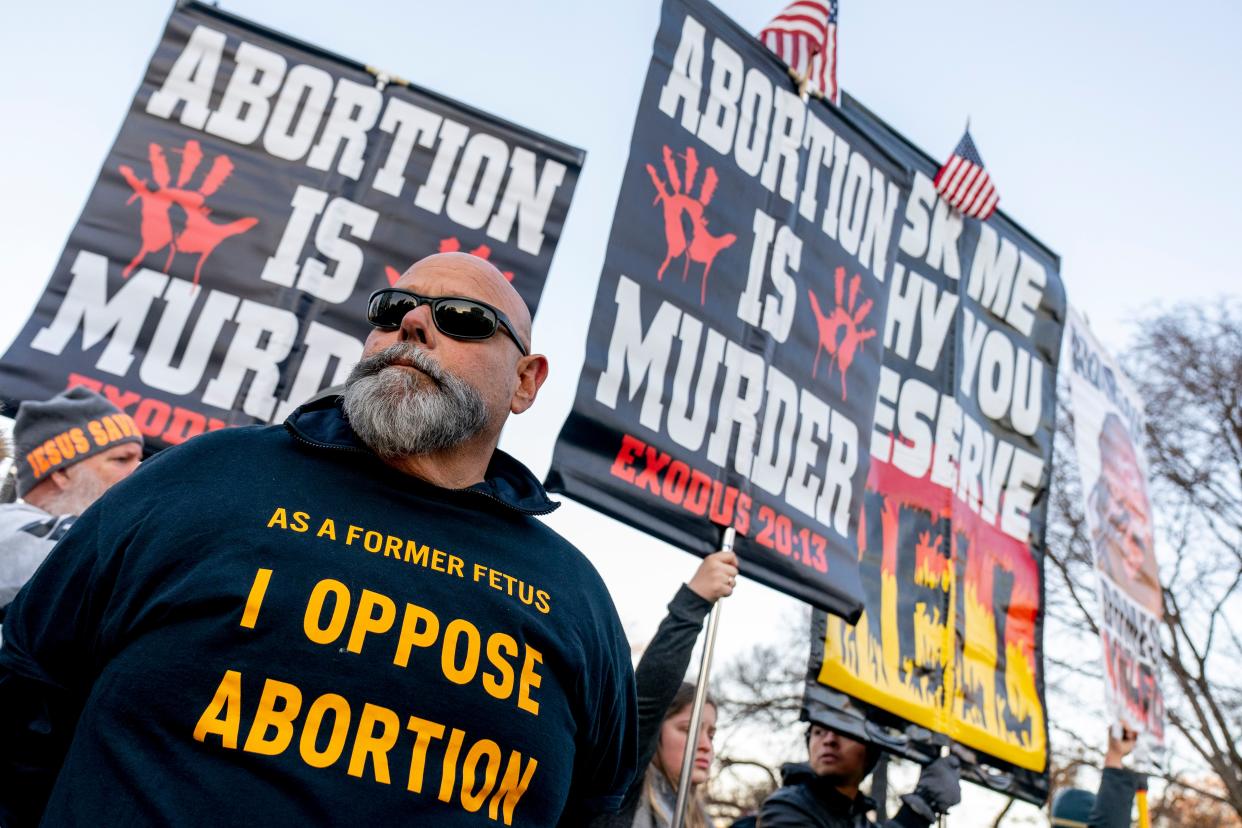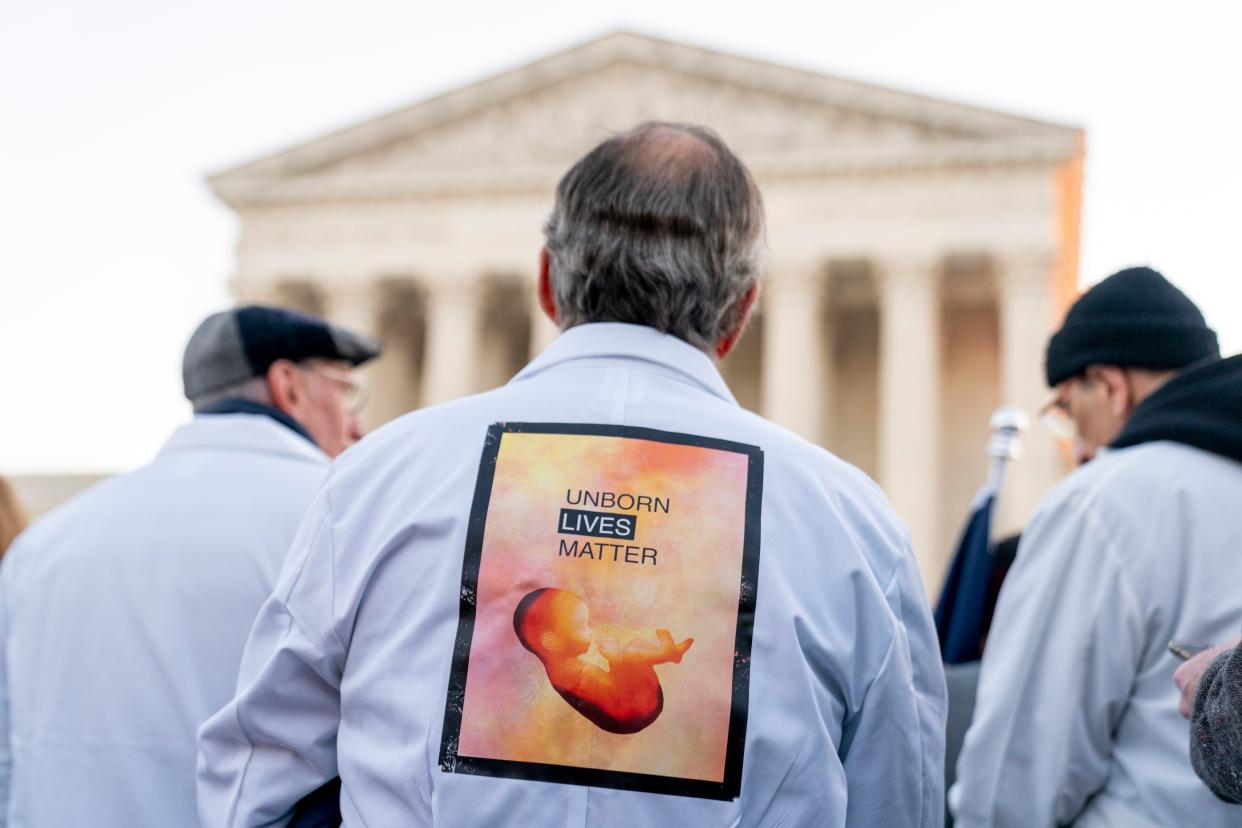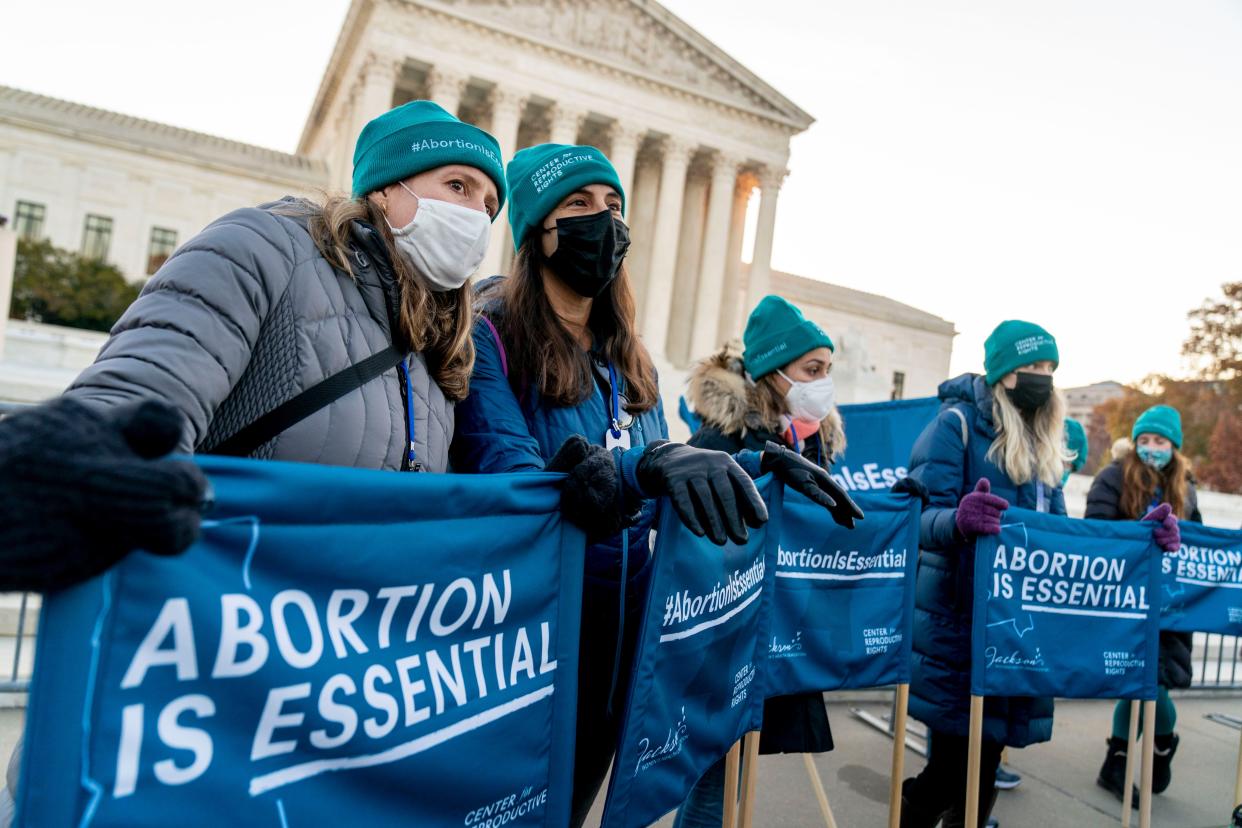Roe v. Wade hangs in the balance at Supreme Court
The country held its breath on Wednesday as the Supreme Court grappled with oral arguments in the high-stakes case that could spell the end of the federal right to an abortion established almost a half-century ago in Roe v. Wade.
Republicans hope, and Democrats fear, that the conservative majority on the nation’s top court will uphold Mississippi’s ban on abortions after 15 weeks of pregnancy — and perhaps go further, rejecting any constitutional basis for reproductive rights.

Over two hours at the Supreme Court, nine justices sparred and quibbled with lawyers, as Americans tuned into audio streams in search of hints at how the justices might rule, and as protesters on both sides of the issue held warring demonstrations in the shadow of the towering Roman-style court house.
By the time the drama had drawn to a close, remarks from the swing justices had court watchers believing that the Mississippi law would likely stand, and that Roe was in grave peril. The Capitol Police, meanwhile, announced the arrests of 33 people who allegedly blocked traffic on Constitution Ave. in Washington.
The Supreme Court, which has a six-to-three conservative tilt, faces three broad choices in the case.
It can overrule the Mississippi law outright as a violation of long-established constitutional reproductive rights. It can allow the law to stand, but tailor its ruling to the law alone, curtailing but not eliminating the right to an abortion. Or it can take a hammer to Roe v. Wade and Planned Parenthood v. Casey — a 1992 case that reaffirmed but tweaked federal abortion protections — and say the cases were wrongly decided.
A ruling is not expected until June. The six conservatives seemed to express openness to allowing the Mississippi law to stand, leaving Democrats to wonder if their worst-case scenario was on the horizon after a decades-long Republican drive to unwind Roe.

Speaking on the steps of the Supreme Court, Senate Majority Leader Chuck Schumer (D-N.Y.) decried the possibility that the case could “unravel decades of legal precedent, and reshape women’s healthcare in the country as we know it.”
“Inside the walls of this courthouse, the Supreme Court is hearing arguments on a case that represents perhaps the greatest threat to Roe v. Wade that we’ve seen in a generation,” Schumer said, charging that Republicans have stuffed federal courts with extremist, far-right judges. “But for all their efforts, we are here to say we will not be intimidated. For all their efforts, we are in one voice. Abortion is a fundamental right.”
Republicans, however, have long felt that the 1973 ruling in Roe was not grounded in the text of the Constitution, and instead marked a tragic moment of judicial overreach. With a conservative-leaning Supreme Court in their pocket after it was remade by former President Donald Trump, red-leaning states have increasingly passed anti-abortion laws and dared the court to strike them down.
In September, the high court declined to block a Texas law that bans abortions after just six weeks of gestation, a point when many women do not know they’re pregnant. At the time, the court did not offer a ruling on that law’s constitutionality.
And on Wednesday, the court looked ready to give a final verdict approving Mississippi’s ban after 15 weeks, which is about nine weeks before a fetus can typically survive outside the uterus.
At one point, Justice Brett Kavanaugh, a relative judicial moderate who was nominated by Trump, ticked off previous Supreme Court precedents that have been later rejected by the court, a possible signal that he does not think Roe’s long reign secures its fate.

His path onto the court in 2018, which was complicated by allegations of sexual misconduct against him, was cleared in part by the approval of Sen. Susan Collins (R-Maine), who supports abortion rights. Collins said he told her he considered Roe to be settled law. But with the issue in front of him on Wednesday, he questioned whether the Supreme Court should have a hand in reproductive rights.
“Why should this court be the arbiter rather than Congress, the state legislatures, state supreme courts, the people being able to resolve this?” Kavanaugh asked. “And there will be different answers in Mississippi and New York, different answers in Alabama than California.”
New York has some of the most robust abortion protections of any state in the U.S., and the decision in the case will not directly impact New Yorkers’ ability to receive the procedure. But it could immediately influence the options for women across large swaths of the country. And its ramifications would grow further if the court dashes Roe completely.
Justice John Roberts, the court’s chief and an incrementalist in his judicial approach, suggested that the justices could take the middle path by ruling on the Mississippi restriction alone. About 93% of reported abortions in the U.S. take place in the first 13 weeks of pregnancy, according to the Centers for Disease Control and Prevention.
A lawyer for Mississippi, Scott Stewart, has aimed fire at Roe and Casey. In a brief, he called the rulings “egregiously wrong.” In court, he declared they “haunt our country.”
Roberts has bristled at the line of argument. “That may be what they’re asking for, but the thing that is at issue before us today is 15 weeks,” Roberts said Wednesday of overruling the precedents.

But after the appointment of Justice Amy Coney Barrett, a conservative from Indiana, in the final days of the Trump administration, Roberts now has five justices to his right on a nine-person court; he may have little control of the ultimate decision.
Justice Sonia Sotomayor, a liberal who lives in Manhattan and adamantly supports Roe, suggested that a sweeping ruling from the court’s conservatives could damage the court’s legitimacy.
“Will this institution survive the stench that this creates in the public perception that the Constitution and its reading are just political acts?” she asked. “If people actually believe that it’s all political, how will we survive? How will the court survive?”
With News Wire Services
